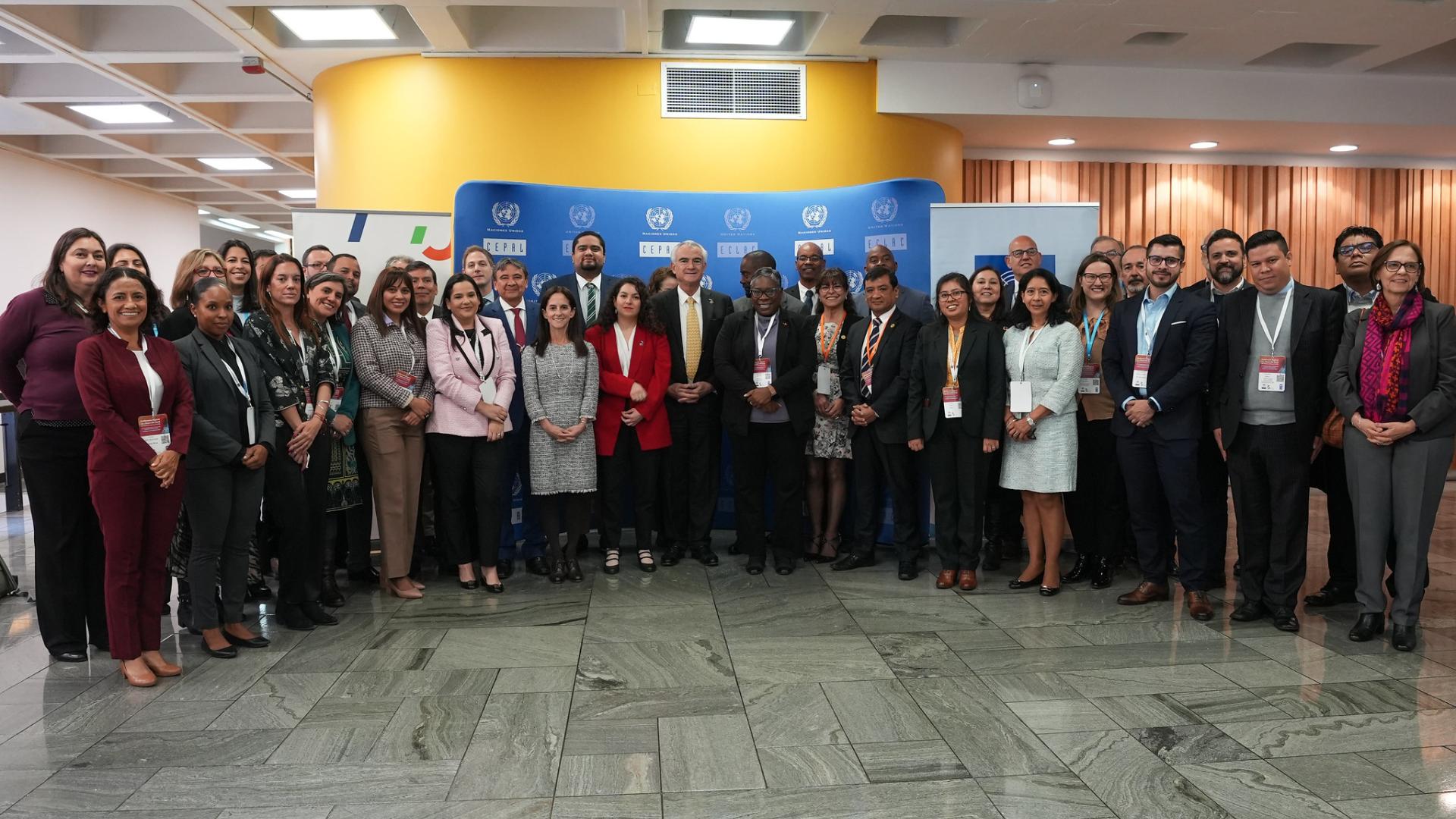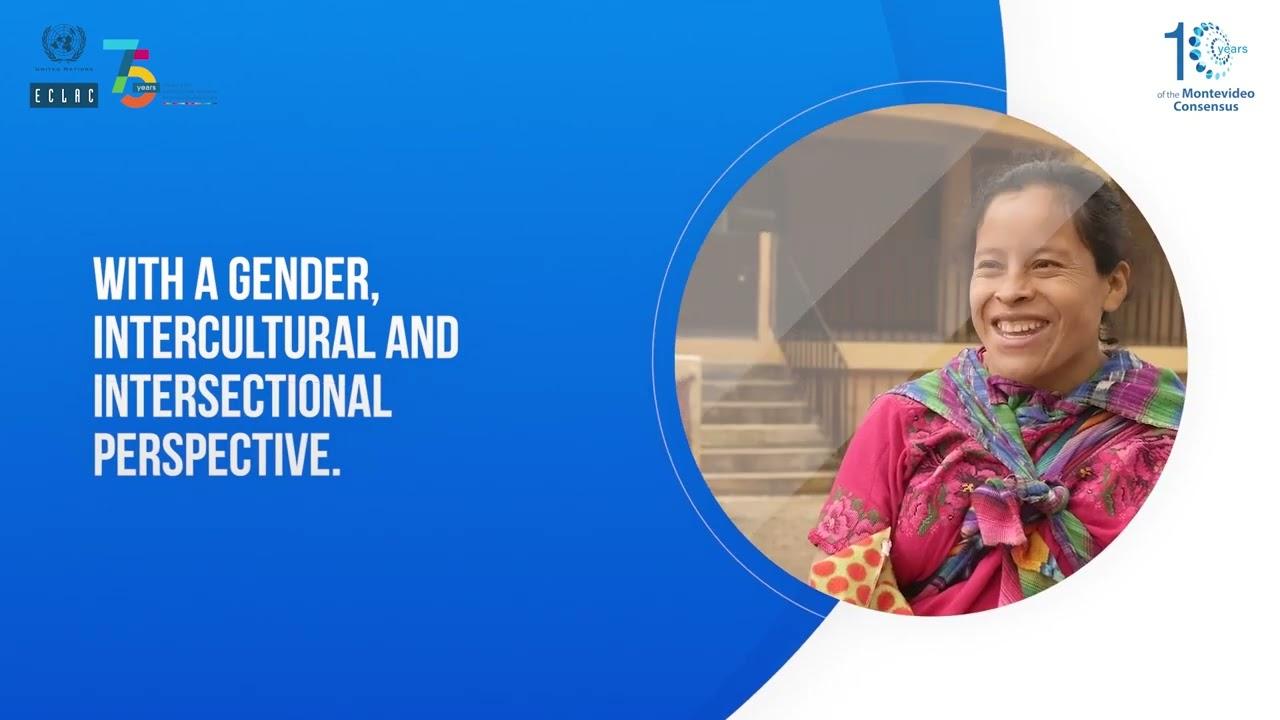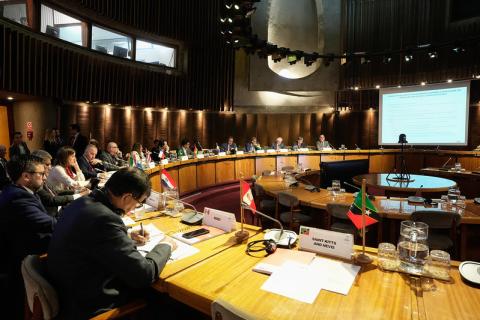Briefing note
Parliaments have a critical role to play in the implementation, follow-up and review of the 2030 Agenda for Sustainable Development, Alicia Bárcena, Executive Secretary of the Economic Commission for Latin America and the Caribbean (ECLAC), underscored today during a virtual presentation made before the Parliament of Trinidad and Tobago.
“You are the ones who enact laws that support fulfillment of the Sustainable Development Goals, adopt budgets, monitor accountability, promote the integration of distinct citizen perspectives, and debate on how the SDGs can be meaningfully adapted at national and sub-national levels,” she explained.
Bárcena participated this Monday, April 26, in the first of a series of four SDG Masterclass seminars organized by the Office of the United Nations Resident Coordinator for Trinidad and Tobago, Suriname, Aruba, Curaçao and St. Maarten, Marina Walter, at the request of the Parliament of Trinidad and Tobago.
The gathering featured the opening remarks of Bridgid Annisette-George, Speaker of the House of Trinidad and Tobago. Following Bárcena, the speakers included Luis Felipe López-Calva, Regional Director for Latin America and the Caribbean of the United Nations Development Programme (UNDP); U.S. economist and scholar Jeffrey D. Sachs; Dr. David Smith, Coordinator of the Institute for Sustainable Development at the University of the West Indies; and Christian Salazar, Regional Director of the United Nations Development Coordination Office.
“The countries of the Caribbean have made tremendous efforts to fulfill the 2030 Agenda,” ECLAC’s Executive Secretary affirmed, highlighting that “Trinidad and Tobago presented its voluntary national review (VNR) on the SDGs in 2020, in the midst of the pandemic, highlighting the government response to COVID-19.”
“But the VNRs are not the end of the road, they are the beginning,” she noted.
All actors involved at a national level need to have greater knowledge and more ownership of the 2030 Agenda. The institutional capacity for monitoring and evaluating the SDGs must be strengthened and officials must ensure that social protection systems are more inclusive and sustainable, ECLAC’s highest authority indicated.
The 2030 Agenda is at a critical point in the region. Only a third of its targets are on track to be achieved in Latin America and the Caribbean, Bárcena acknowledged.
The world and the region are in crisis, with low growth, high levels of inequality, an environmental emergency and an unprecedented health crisis. “We have heard the voices of the Caribbean people who indicate the vaccines against COVID-19 are not reaching their countries. Haiti, for example, has not received a single dose,” she warned.
To achieve a transformative recovery and build forward better, ECLAC proposes grouping all public and private investments together under the concept of a “big push for sustainability,” based on the 2030 Agenda, the SAMOA Pathway and the Paris Agreement on climate change, Bárcena stated. Eight strategic sectors have been identified, including the transition to renewable energy, the circular economy, the bioeconomy, digital inclusion and innovation, and sustainable tourism, among others.
During her presentation, Bárcena shared with the parliamentarians ECLAC’s various proposals to expand Caribbean countries’ access to short, medium and long-term financing, given their fiscal deficits and their high levels of indebtedness, aggravated by the pandemic.
We have proposed a debt for climate adaptation swap initiative, which includes the creation of a Caribbean Resilience Fund, she said. “We believe this Fund will spur economic growth, enhance liquidity and provide debt relief,” she reprised.
Upon outlining specific recommendations for recovery in the Caribbean, Bárcena posed the need to have a plan of action aimed at encouraging the private sector to recuperate jobs in key areas. Emphasis must be placed, she said, on small and medium-sized enterprises and on social development and advancing towards a “green economy.”
“We must move towards a transformative recovery with equality at the center. We must avoid inertia and political fragmentation. We need to be united. We need strong institutions, State capacity, new political compacts and more solidarity with the Caribbean,” Bárcena asserted, reiterating ECLAC’s commitment to the Caribbean First strategy, which seeks to prioritize the subregion’s needs in the debates and events convened by the United Nations regional commission.
In addition, she made available to the parliamentarians, and all interested actors, ECLAC’s intellectual and statistical production as well as its observatories and communities of practice, including the Regional Inter-agency Knowledge Platform on the Sustainable Development Goals (SDG Gateway) and the COVID-19 Observatory in Latin America and the Caribbean.



